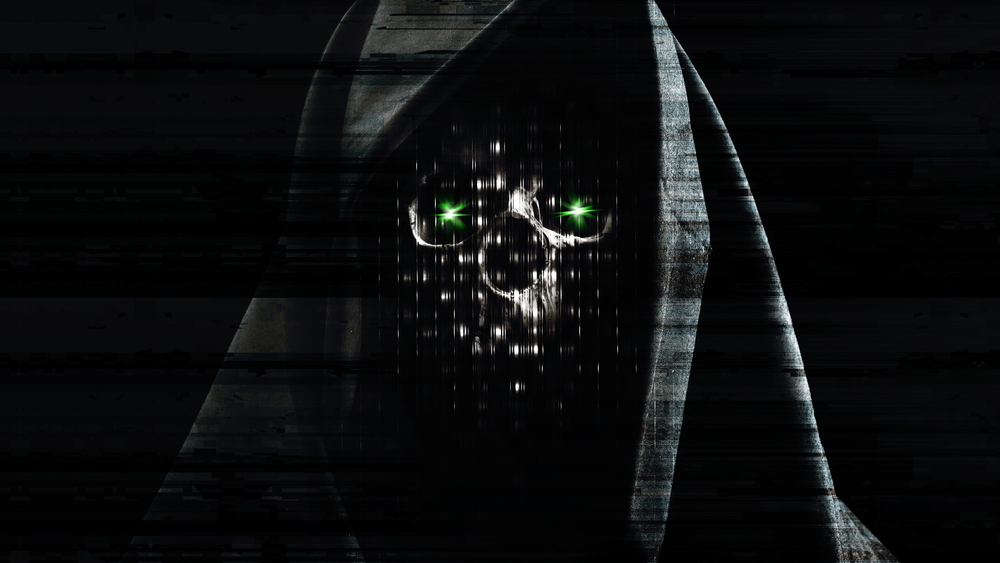Should you be spooked by AI?
The continued march of automation will revolutionise our world — but how is still unclear


Today is Friday 13th, so I decided to stick with the trope for this column and find something spooky to write about. Unfortunately, it seems the only scary tech-related thing out there at the moment is the camera array on the iPhone 11 Pro and 11 Pro Max (if you find the cluster of lenses on Apple's latest devices make you squirm, I suggest you never look up the Surinam Toad).
Undeterred, I broadened my horizons in search of the perfect horror story and reader, I found it.
The slow, grinding march of the AI apocalypse.
I'm sure most of us will be aware that the robot uprising hasn't happened just yet as I look out my window, no legions of killer androids line the horizon and I didn't notice any yesterday either. But that's not to say that nothing is happening in the world of artificial intelligence that could threaten our way of life.
This week, fast-food chain McDonald's bought AI firm Apprente with the aim of using its tech to automate the ordering process at its Drive-Thru locations. The technology will also be used to enhance the in-store ordering process that uses screens for quick ordering, rather than interaction with a human being.
The obvious outcome of this is that people will lose their jobs. While upskilling programmes are in place, there's only so much retraining to be done. While industry insiders are quick to point to the explosion of new jobs brought about by the agricultural and industrial revolutions of the past jobs that couldn't have been imagined before their creation the pace of change now seems vastly quicker than before. Will there be time to retrain everyone, and what happens when those roles are also automated? And while there will be a need for some software developers (although this role, too, is becoming increasingly automated), one person can oversee many AI programmes.
What's more, not all of us are cut out to develop and maintain AI programmes I know I'm not.
Get the ITPro daily newsletter
Sign up today and you will receive a free copy of our Future Focus 2025 report - the leading guidance on AI, cybersecurity and other IT challenges as per 700+ senior executives
So what happens when the magma of economic change fuelled by AI finally erupts into a fantastic 1990's disaster movie of social revolution?
Well, that's quite hard to say. Paul Mason put forward the idea of an eco-conscious and egalitarian utopia in his book Postcapitalism, where work becomes voluntary and technology is angled towards solving societal problems like ill health. I've come across similar ideas from the likes of Nesta over the years, although typically minus the overt post-capitalist skew. On the other hand, Elon Musk has posited a future where we're kept as pets by generalised AI, and many a Hollywood film has posited that such a machine may see us as an existential threat and launch a preemptive strike.
But that's the thing about apocalypses the very name refers to the fact that they are a revelation, with what is revealed being inconceivable and incomprehensible beforehand.
Maybe when the curtain is finally drawn back, we will find the T1000 terminator standing behind it with the ED-209 "peacekeeping" droid and demented monorail overlord Blaine.
Perhaps we'll turn the revolution to our mass benefit, providing endless leisure time to pursue whatever hobbies we wish, while wearing some unlikely headgear.
Or maybe we're already in the AI future and everything around us is just a simulation. Now that would be spooky.

Jane McCallion is Managing Editor of ITPro and ChannelPro, specializing in data centers, enterprise IT infrastructure, and cybersecurity. Before becoming Managing Editor, she held the role of Deputy Editor and, prior to that, Features Editor, managing a pool of freelance and internal writers, while continuing to specialize in enterprise IT infrastructure, and business strategy.
Prior to joining ITPro, Jane was a freelance business journalist writing as both Jane McCallion and Jane Bordenave for titles such as European CEO, World Finance, and Business Excellence Magazine.
-
 Bigger salaries, more burnout: Is the CISO role in crisis?
Bigger salaries, more burnout: Is the CISO role in crisis?In-depth CISOs are more stressed than ever before – but why is this and what can be done?
By Kate O'Flaherty Published
-
 Cheap cyber crime kits can be bought on the dark web for less than $25
Cheap cyber crime kits can be bought on the dark web for less than $25News Research from NordVPN shows phishing kits are now widely available on the dark web and via messaging apps like Telegram, and are often selling for less than $25.
By Emma Woollacott Published